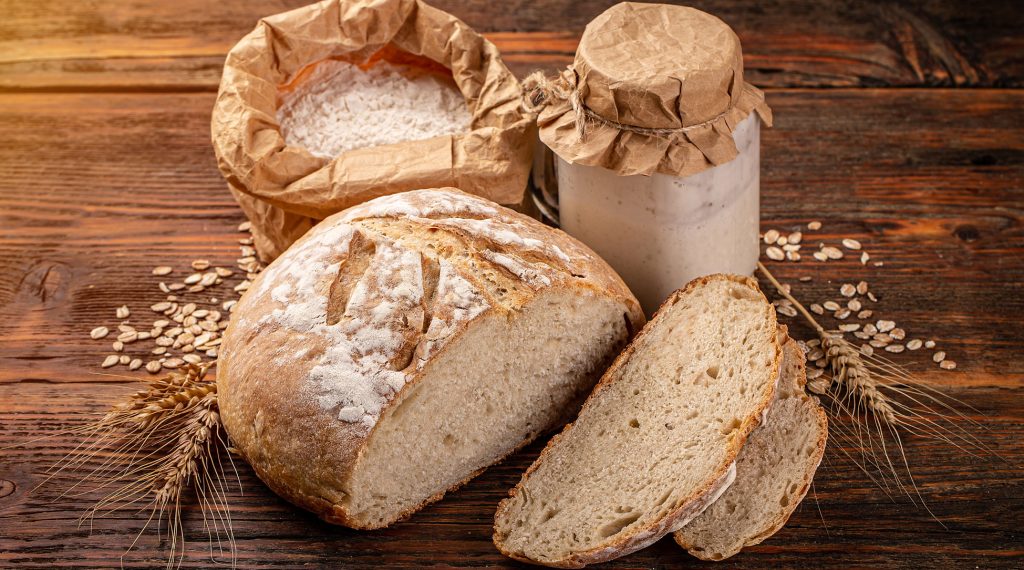
A few years ago, I was teaching a class of incredibly gifted and diverse students who were in the midst of multiple Advance Placement (AP) classes, laboratory research internships, term papers, and extracurricular activities. They were struggling to keep it all together on a daily basis. One student was hospitalized for weeks for depression and anxiety. Another had a major heart surgery and nearly lost his life. And still they all kept going.
It was somewhere in the winter when I decided that we needed a day to not tackle any content, and to simply be with each other as a community. I cooked up a huge pot of chicken soup. Several students brought in a loaf of home-baked bread. We shared, and we ate. We talked, and laughed, and smiled.
For one day—one class period—there were no worries about the future, or assignments, or anything. Instead, we broke bread together, in a communal ritual called lunch. I have repeated this a few times since that day, with other classes, and it is always a wonderful experience. My students truly appreciate the fact that we can take a day, and let the pressure off. As an outgrowth of that first time, I began baking bread, specifically sourdough, and the subject comes up in classes with some frequency.
“Good Morning, Happy Campers!”
“Why are you so happy in the morning?”
“Because I have the privilege of seeing some of my favorite students!”
“Did you run this morning?”
“I sure did. And it was a good run.”
“That’s just bonkers. What bread are you making this time?”
“I’m trying a tomato, basil, garlic whole wheat recipe. It looks promising.”
Are you bringing in the extra for us? And are you making some soup too?”
(sigh) “If I must. I’ll bring the bread.”
The liturgy remains the same.
Forty days ago, I was sent home from my school, as were millions of my colleagues across the country. We were told by our governor that schools would be closed for a few weeks so that we could flatten the curve of COVID-19 infections that were projected for the DMV (District of Columbia, Maryland, and Virginia) region. What started as a few weeks has now become six, with at least a few more to go. In a rather timely situation, this closure came just a few weeks into the Lenten season.
So, we adjusted and modified, and made the best attempts to bring our classrooms and our church services directly into people’s homes. Teachers learned new teaching platforms, paring down the amount of content instruction, and adapting their own teaching styles and schedules to accommodate their own changed home lives. Church services were streamed online. Pastors had to become tech-savvy in days. The music of the Lenten season was sung by a soloist or not at all.
Classrooms that would have held 35 or 40 students were abandoned to the masked and gloved cleaning crews who were bathing each possible surface with the strongest possible disinfectant. Sanctuaries that would have held hundreds or thousands of parishioners were empty, except for a pastor or priest delivering their liturgy and sermon to the unblinking eye of a video camera.
The liturgy remains the same.
After making contact with almost all of my students, and setting the weekly lecture and office hours schedule, I did my best to stick to my own routine. I still awoke at 3:45 each morning to run. I took my dog for his walk after my run. I still ate my morning bowl of oatmeal with a freshly brewed cup of coffee. I dressed in a button-down shirt with a bow tie before I met with my students each time. But instead of getting in my car by 6:30 a.m., I go downstairs to the basement for my 8:00 a.m. office hours on Google Meet.
“Good Morning, Happy Campers!”
“Why did you have to schedule these meetings so early?”
“Because you need to get up and get moving. This situation won’t last forever.”
“Did you run today?”
“I sure did. And it was a good run.”
“You’re nuts. What kind of bread are you making?”
“It’s a rye sourdough. One loaf will have cranberries. The other is plain.”
“Are you saving the extra for us? And are you going to make some soup too?”
(sigh) “If I must.”
In a most bizarre holy season of Passover Seders over Zoom, webcast Lenten and Easter services, and streaming Ramadan courses, I have found that my students are hungry for the comfort of their school and faith communities. They are searching for whatever anchor we can provide as adults, teachers, and faith leaders. I, too, struggled, unable to interact with my congregation in the sanctuary, hearing instead the call and response of the liturgy in the same voice. But in the midst of that disorientation each service, I became certain of two things:
The liturgy remains the same.
I’ll bring the bread.
“The liturgy remains the same” recipe
- 750g flour (Bread, Rye, White Whole Wheat)
- 15g salt
- 20g sugar
- 350g sourdough
- 450g water
Mix for 15 minutes, rest for three hours.
Knead and divide into loaves, adding in the fruits and nuts if desired; rest and rise 3-24 hours (I prefer overnight in the refrigerator).
Bake 15 minutes at 450 degrees or 30 minutes at 350 degrees.
Share and eat; talk, laugh, and smile.
 Josh Headley is the history department chair at Baltimore Polytechnic Institute, a public high school founded in 1883. “Poly” emphasizes sciences, technology, engineering, and mathematics (STEM), and is located on a 53-acre tract of land in North Baltimore. Headley was a member of the 2019-20 ICJS Teachers Fellowship.
Josh Headley is the history department chair at Baltimore Polytechnic Institute, a public high school founded in 1883. “Poly” emphasizes sciences, technology, engineering, and mathematics (STEM), and is located on a 53-acre tract of land in North Baltimore. Headley was a member of the 2019-20 ICJS Teachers Fellowship.
Opinions expressed in blog posts by the ICJS Teacher Fellows are solely the author’s. ICJS welcomes a diversity of opinions and perspectives.